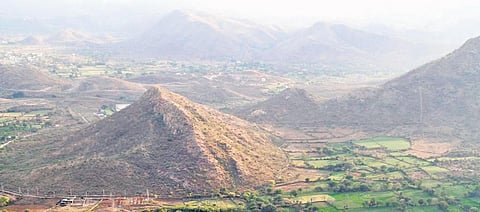

NEW DELHI: In the last 44 years, forests in the Aravallis have reduced by 7.6 per cent and the Thar desert is advancing towards Eastern Rajasthan, Haryana and the national capital, suggests a Central University of Rajasthan study.
Further, it warns of a looming threat to the Aravallis as a result of the Forest Conservation Act (FCA) Amendment Bill being passed in the parliament that excludes safaris from ‘non-forest activities’, thus resulting in commercialization of the forests without due consideration of the people dependent on the forest.
Experts attribute the desertification to the destruction of the Aravalli hills; the loss of forests and green cover. Our fear is that with the enactment of the FCA Amendment Bill, a massive bulk of the Aravallis can potentially be sold, diverted, cleared and exploited without any regulatory oversight.
The sacred forest of Mangar Bani in Haryana is recorded as ‘gair mumkin pahad’ and is awaiting recognition as a forest by Haryana. The new bill will decimate such sacred forests protected and managed by local communities even though they are not currently notified as forests across the 700 kilometers Aravalli range spread over 4 states.
This will fasten the rate of desertification and be disastrous for the forests, air quality, water security, people and wildlife of India’s oldest mountain range. Tribal families dependent on the Aravallis for their sustenance have been raising their voice against illegal mining in the Aravalli hills to protect their forests and land for several years now. The cumulative impact of human intrusion will fragment an otherwise intact forest and further the loss of wildlife and indigenous ecosystems.